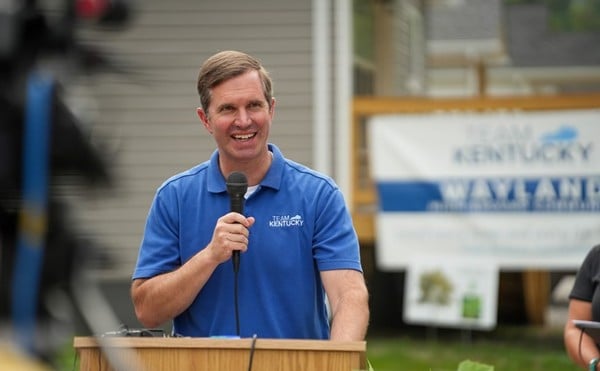BY LT. COL. JOHN G. NORRIS U.S. Army 4th Battalion 23rd Infantry of the Stryker Brigade
We welcomed 2006 by firing 120mm illumination rounds exactly at midnight. This was a planned mission to accomplish the key task of disrupting enemy IED placement by illuminating the sky over an area of suspected enemy activity. The mortar firing also served as a military style fireworks celebration to bring in the New Year with a bang. To the soldiers in our battalion who understood this mission was taking place, it was recognized as a celebration. Soldiers who may have been unaware we were firing mortars must have assumed we were again receiving enemy mortar fire.
New Year’s Day opened with our third regional security council meeting in Hamam Al Lil. These meetings assemble local district leaders in a town hall setting to discuss issues and concerns affecting the local populace. The leaders who now routinely attend these meetings are mayors, city council members, Imams, sheiks, muktars, police chiefs and Iraqi Army commanders. My intent for the meetings is to establish a foundation and to assist the Iraqi leaders in finding Iraqi solutions for Iraqi problems.
This one was well attended, with all leaders present from both sides of the Tigris River, representing the key towns of Hamam Al Lil and Nimrud. This alone is a significant accomplishment, considering that less than a year ago, both towns were a bed of the insurgency for the Mosul area. The most notable Mosul terrorists used these towns as their safe haven.
In March I visited this area while conducting reconnaissance in preparation for my unit’s arrival in August 2005. What I observed on this trip were towns destroyed by terrorists and void of leadership and security. The real leaders of these towns at that time were the terrorists. It was unpopular to be recognized as supporting or cooperating with coalition forces — in fact, if you did your life was in danger. But leaders have slowly begun to surface as a result of improved security.
Most of the leaders and their families I work with have all been personally attacked or wounded. Many bear the horrible scars of war as a badge of honor. The mayor from Hamam Al Lil, retired Brigadier General Kalif Kadir Mohammed Al Jibouri, is one of my most trusted and capable leaders. I have established a trust and a true friendship with him that is sincere and one I will remember the rest of my life. He is one of the few brave individuals who has stayed the course from the beginning and fought the insurgency side by side with coalition forces.
During the council meeting, he commented on progress so far and reflected on the early struggles and beginnings of a young democracy taking hold in Iraq. He told everyone attending that the progress has been accomplished “fighting with one hand and rebuilding with the other.â€
Mayor Kalif’s personal commitment is not without cost; he has been attacked by would-be assassins, suicide bombers and IEDs, and has faced the prospect of losing family members. As a result, we placed concrete barriers around his home and office to stop suicide vehicle bombers.
A passing car spraying machine gun fire attacked his uncle, a council member for the town. He received numerous near-fatal wounds. This was meant to intimidate the mayor and dissuade him from working with or supporting the coalition.
Unfortunately, such intimidations are a favorite enemy tactic. Surprisingly, he survived and actually drove himself to the hospital, exiting the car and handing the keys to a police officer, instructing him to hold them until he was released.
Today, his car is riddled with bullet holes that are covered with clear tape. He carries the bullets that were removed from his body as a reminder — not to mention a great conversation piece. Without being asked, he will gladly show them to you, plus the scars on his stomach and legs!
As a sign of coalition support, I have asked our battalion surgeon to conduct routine checks on him to see how he is doing. He suffers from a bad heart as well. And he’s just one leader with a story of incredible personal sacrifice; there are so many more. I am humbled by the courage and commitment of the Iraqi people.
At the meeting, Mayor Kalif’s opening remarks were inspirational. I was impressed by his comments and vision for the Tigris River valley. He discussed the New Year and how the Iraqi people should see the opportunity for new beginnings. Two major elections are over and the people have spoken; the future of Iraqi self-governance is on the way.
He went on to say that the success to date was possible only because of coalition support. His closing remarks were a reflection, and also a source of pride for me and confirmation that we are making progress.
“Thanks to the coalition,†he said, “the path is now clear; we (Iraq) must choose to follow it.â€
John G. Norris is a Louisville native who holds a key Army command in Mosul, Iraq. Contact him at [email protected].





